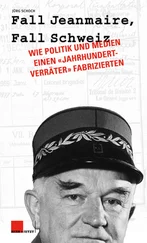Are those people of Leo’s here yet?
Yes, ma’am, Mala said. They’ve been here for a few hours. This is Fan, who came with them. Fan, this is Miss Cathy.
Miss Cathy turned to Fan and looked at her as blankly as she might a statuette in the gallery, one that had been there a very long time.
Does she speak English?
Yes, ma’am, Mala told her.
That’s good. She looked glumly at Fan and said, Do you think you’ll like it here?
I don’t know yet, Fan simply answered.
Her matter-of-fact tone piqued the woman’s attention, as she was obviously expecting a different reply.
Where are you from?
The counties.
She’s from the Smokes, ma’am, Mala said.
Where’s that?
I don’t know, ma’am.
You must know, Miss Cathy asked Fan.
She shook her head because she didn’t know, not really, and whatever else she could add did not seem worthwhile.
Miss Cathy was now staring at her, examining, it seemed, every hair on her head, the shape and color of her eyes, the texture of her skin.
She touched Fan’s face. And then she turned away. She said to Mala, Should I go back up or are you serving now?
I think Mister Leo will be ready for dinner soon, ma’am.
Well, then, let’s do so.
In the dining room they served themselves except for Miss Cathy, whose plate Mala filled with small samples of the dishes. She sat at one end of the table, Mister Leo at the other, with Quig and Loreen to either side of him and Fan closest to Miss Cathy. Mala went back into the kitchen. Everyone ate quite heartily, save for Miss Cathy, who took an exploratory bite of each dish and then no more. She just drank her wine, though not with any gusto. She didn’t say much, either, even when her husband tried to bring her into the conversation by saying how she had selected much of the art to buy at auction, as she was a talented painter herself. He didn’t seem to mind when she showed no interest in engaging with him, and he simply went on to other topics, among which were the misguided new policies of the directorate, who were stifling free enterprise with a host of new taxes, and the worrisome trend of Charter youth, who despite all their advantages and test prep were scoring lower and lower, in raw terms, on the yearly Exams.
No one seems to care because the results come out in percentiles! he said. But I’ve looked back at the historical numbers and performance is declining at every grade level. I will assure you the tests are not getting harder. In fact they’re getting easier, is what I am told. So we must conclude that Charter children are not as bright as they used to be. Or else they are feeling less pressure to do well, being disincentivized by the wealth of their parents. Either way, it’s an ominous sign. We’re losing what makes a Charter a Charter, which is the tireless drive for excellence. The compulsion to build and to own. Meanwhile, the number of outsiders testing into our ranks is ever rising. They aren’t in decline. This alarms some people, but I’m not so against it, actually, if it means we’re getting top-notch young minds.
You believe in new blood, Miss Cathy mumbled.
Yes I do, he replied, not acknowledging her weary tone. No truly intelligent person can be a bigot. We welcome all as long as they have drive and a capacity for hard work. He briefly glanced at Fan and then took Quig by the shoulder. Of course, talent and skill count for a lot. I never told you the whole story, Cathy, but were it not for this good man I’d be a cripple, if not a corpse rotting on the side of a counties road. We need people like him. I keep trying to tell him we could arrange for a review of his case, a reinstatement hearing, but he wants no part of it. Do you, my good man?
Quig said he did not.
No, you don’t. It’s my one criticism. You are stubborn. I hope not fatally. But nonetheless we’re going to help you out. The drill has been scheduled to be trucked down to you. And about the geno-chemo for Loreen’s son. I’m happy to tell you it was just sent over this morning by a friend I have on the pharmacorp board. It’s right in my office.
Loreen thanked him profusely, reaching out to clasp his hand, though her touch seemed to disagree with him and he leaned back in his chair, interlocking his fingers behind his head.
And what do we receive in return? The joy and satisfaction of knowing we’ve done some good. And I have my leg! My dear wife has me! And Mala, Mala, please come out here, Mala gets a new young helper to train and to be her companion. I’m afraid we’re not the best company, are we my dear?
Oh, Mister Leo, Mala said, that’s not true.
Tell the truth! Mister Leo teased her.
I am, Mala insisted.
No, you’re not, Miss Cathy pronounced, to which Mala didn’t respond. She stood there awkwardly for a moment before asking if she might clear people’s dishes. Fan rose to help and Miss Cathy told her to sit, that she was a guest tonight and Mala would take care of it. Isn’t that right, Mala?
Yes, ma’am, of course. She is a guest.
She wants to help, Mister Leo said.
A guest is a guest, Miss Cathy said, with an unusual amount of feeling. Then she winced, pressing a hand to her chest. Whatever struck seemed to pass but she took a blue pill anyway from a tiny silver case, set atop one of her rings.
Are you all right, my love?
Did you hear what I said?
Yes, we did, my love.
No one spoke for a while. Loreen was staring at her as if she was crazy while both Quig and Fan had just begun to fathom the steep troughs of this woman’s sadness.
Mister Leo finally said: I think you’re tired, my dear.
I just woke up, she replied. But you’re right, Leo, I am tired. And so tiring, too, for your guests. Excuse me. I am going to bed.
And with that, she left.
Mister Leo did not appear in the least perturbed, asking Mala to serve dessert. While she did, he went over the usage of the special drilling equipment with Quig; it would be a two-day loan, but if it went a third because of difficult ground conditions, there would be a cost, as it was being taken off a big job up in Ontario. Quig said he wished to pay for the first two days as well but Mister Leo wouldn’t hear of it, just wanting to set out the deal, though it was obviously not a matter of money to him. Rather he was the owner, he was the builder, and the price of his engagement in any agreement or sphere was the primacy of his executive privilege. Quig did not protest, and whether it was more to save the charges or his rapidly expanding dislike of this man whose life he saved was not clear. All we know is that he was still avoiding eye contact with Fan, who surely must have been making some calculations herself. She had come to value and maybe even adore her entrenchment in the dank but cozy Smokes but it was never a solution and now with circumstance conveying her here she had to determine whether to try this strange household or somehow split off again on her own.
And so in her forthright fashion, Fan said to Mister Leo: Do you know of someone in this village named Bo Liwei?
Who? Mister Leo said, between sips of his coffee.
Bo Liwei. He is now thirty-two years old. He is the second son of Bo Qianfan and Xi Shihong. He tested out of B-Mor Facility 2A twenty years ago. He is my brother.
Show me his picture.
Fan didn’t have one; in fact, her household never had one, following the B-Mor practice of consigning everything about the promoted to the status of lore. In fact, there were no uploaded pictures of him, either, only that sharp etch of his name with the others on the big monument in the park.
He was accepted at Seneca?
Fan said, Seneca Hamlet.
Seneca Hamlet? I haven’t heard that in a while. I think it was one of the villages that was dissolved, or maybe absorbed, at least fifteen years ago now. There used to be five or six very small villages in the vicinity of the lake but not all of them could make it work. They combined with us, we were the most established, and Seneca became Seneca as it is today. But a lot of those villagers went elsewhere.
Читать дальше












